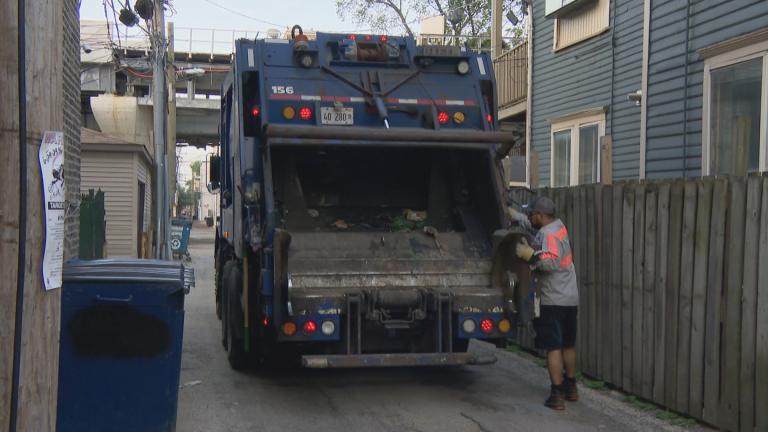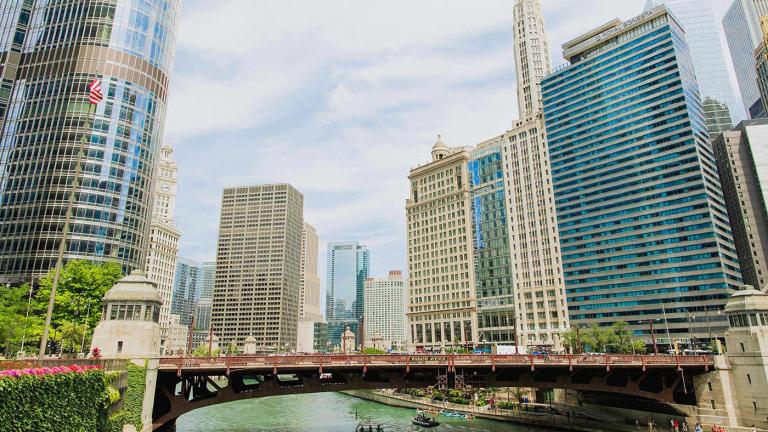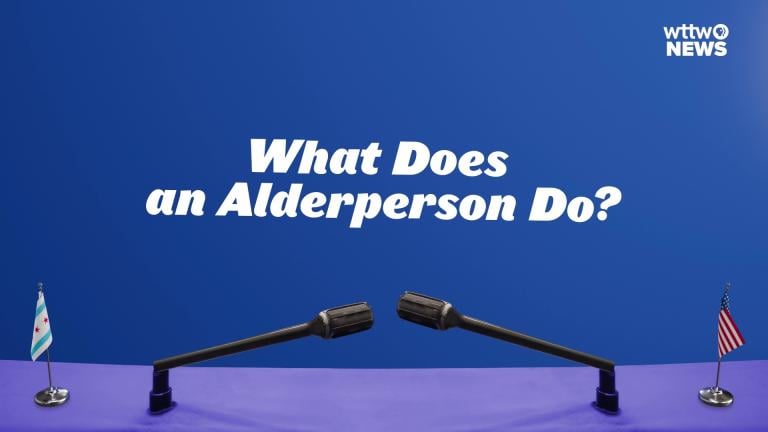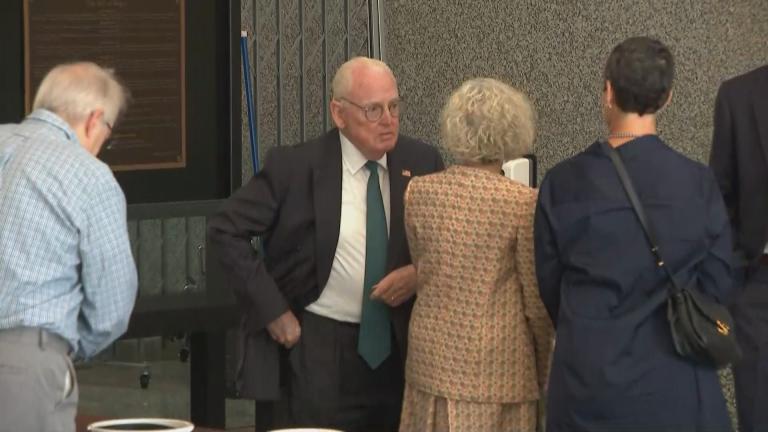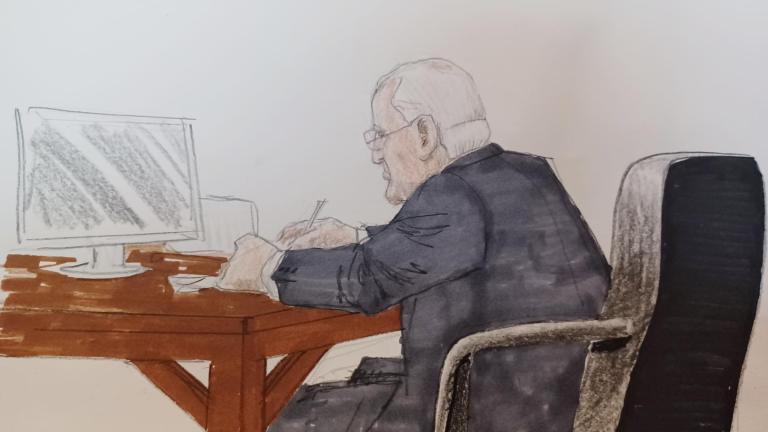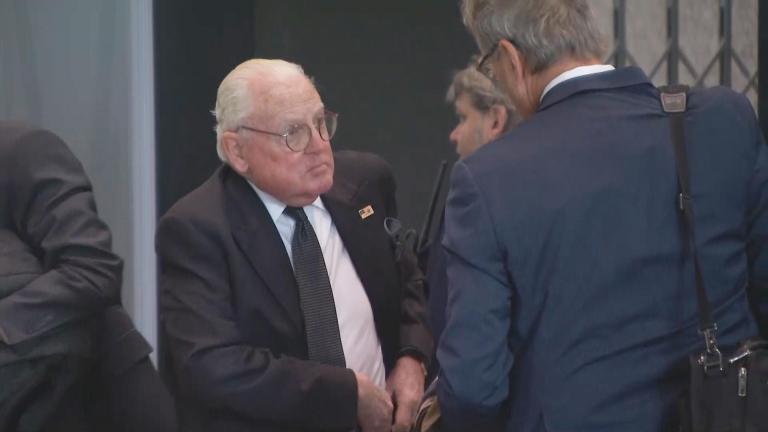The Chicago City Council voted 40-8 to approve an eight-year deal with the city’s police union, giving more than 11,000 officers annual average raises of approximately 2.5% — while imposing new rules on officers suspected of misconduct.
Retroactive to 2017 and ending in 2025, the proposed deal would mean an officer’s salary will rise by approximately 20% during the life of the agreement.
It took more than four years to negotiate a new deal with the Fraternal Order of Police Lodge 7, as Mayor Lori Lightfoot demanded changes to the way officers are investigated after a 2017 probe of the Chicago Police Department by the U.S. Department of Justice found officers routinely violated the civil rights of Black and Latino Chicagoans.
Ald. Jason Ervin (28th Ward) said the agreement was the best possible deal.
“It is not where we would like to be, but it is far from where we are,” said Ervin, adding that he thought it would benefit taxpayers.
But Ald. Maria Hadden (49th Ward) said no vote should be taken until the agreement can be completely negotiated.
“I think we need to get all of the protections that we’re looking for, all of the reforms we’re looking for,” Hadden said.
Ald. Byron Sigcho-Lopez (25th Ward) said the new deal would do nothing to protect victims of police misconduct like 13-year-old Adam Toldeo, who was shot and killed by a Chicago police officer earlier this year, and 17-year-old Laquan McDonald, who was murdered by former Chicago police Officer Jason Van Dyke in 2014.
Although Ald. Carlos Ramirez-Rosa (35th Ward) voted to endorse the deal last week, he said he changed his mind after deciding the deal left too many needed reforms undone.
Police union leaders resisted Lightfoot’s demand for increased accountability, and officers — who are prohibited from striking — worked for nearly a decade under the terms of a contract originally inked in 2012.
The council’s action came over the objections of the American Civil Liberties Union of Illinois, Business and Professional People for the Public Interest, the Chicago Council of Lawyers/Chicago Appleseed and the Chicago Lawyers’ Committee for Civil Rights, whose leaders said the proposed deal does not do enough to ensure that officers protect the civil rights of Chicagoans.
The labor agreement will cost the city approximately $375 million in 2022 to cover the cost of retroactively approving pay raises for officers from 2017 to 2021 and to cover the 2022 pay hike.
The city set aside $100 million for the cost of the contract in 2021, but the city needs an additional $275 million.
The city plans to refinance $1 billion in debt to generate $250 million in savings to cover the bulk of that cost, said Chicago Chief Financial Officer Jennie Huang Bennett.
Lightfoot plans to release a detailed budget for 2022 in the coming weeks.
The deal allows complaints submitted anonymously to be investigated, something the 2012 collective bargaining agreement with the Fraternal Order of Police prohibits, ending a 40-year ban.
In addition, the agreement prohibits the names of complainants from being disclosed to officers until immediately prior to their interview, which typically comes at the end of an investigation.
A new state law bans police unions’ collective bargaining agreements to require complainants to sign an affidavit when filing a complaint against a police officer. In addition, police unions must stop destroying disciplinary records, according to a 2020 ruling from the Illinois Supreme Court.
Also, the deal no longer allows officers who use force against a member of the public to revise their statement to investigators after reviewing audio and video recordings of the incident.
Critics of the Chicago Police Department contend both of those provisions have been used by officers to uphold a code of silence that prevents officers guilty of misconduct from being disciplined.
However, the new contract continues to permit officers to wait 24 hours before speaking with investigators after a shooting. That measure has also been targeted by reform advocates.
In addition, city and union leaders were not able to reach an agreement to require officers to disclose whether they work a second job and how many hours they worked. That issue will be the subject of additional negotiations and may end up in front of an arbitrator, officials said.
The city’s contract with police captains, sergeants and lieutenants allows department officials to impose a 16-hour cap on working any job within a 24-hour period unless ordered by the department.
The new contract also funds the creation of a dedicated mental health ombudsman position, who will be a member of the union “focused on the mental health of officers,” officials said.
Three officers have died by suicide this year, according to department officials.
Contact Heather Cherone: @HeatherCherone | (773) 569-1863 | [email protected]

